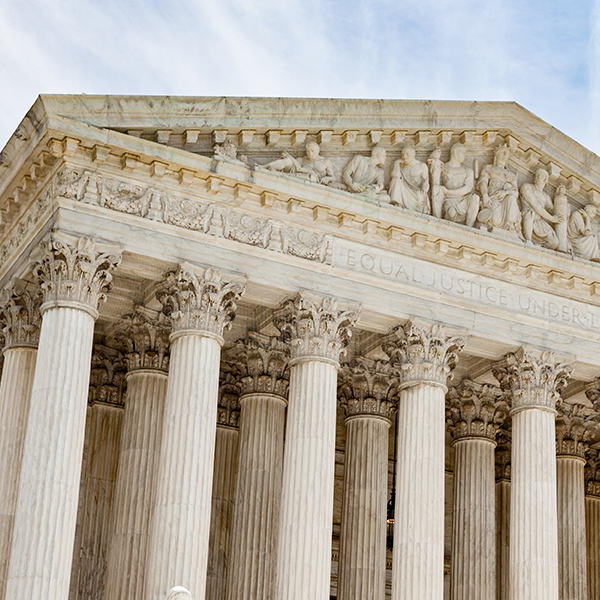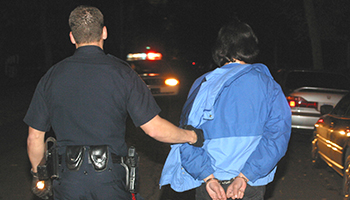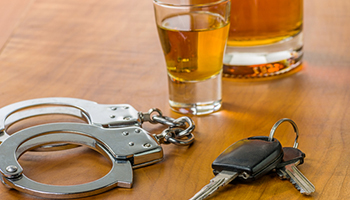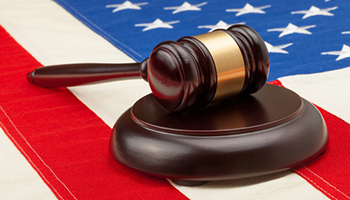





Miami Legal Representation
Grant Dwyer is active in the Miami courthouse every day. Dealing with different judges, prosecutors, police officers, and corrections officers, he knows how to defend a criminal case. He knows how to work the system and what it takes to get cases dismissed quickly. It is not only what you know; it is who you know.
If you have been arrested for a misdemeanor, a felony, or a federal crime, Grant Dwyer will begin representing you immediately. The most important part of any case is the first few days. You need a criminal lawyer who knows the prosecutors and who can talk to them right away, present evidence, and explain why your case is not worth pursuing. The earlier that you hire us, the greater chance that we have of getting your case completely dismissed.
Criminal Defense
A criminal conviction can haunt you far into the future. However, if you have been arrested or charged, you should not assume that you will be convicted. Depending on the circumstances and the charges, there may be a strong argument that a criminal defense attorney in Miami can present. The prosecution must prove every element of a criminal charge beyond a reasonable doubt. Sometimes a strong defense involves poking holes in the prosecution’s case to raise a reasonable doubt. In other cases, there may be affirmative defenses that your attorney can raise, such as self-defense.
DUI
In Florida, someone is guilty of DUI if he drives or retains actual physical control of a vehicle while being under the influence of alcohol or any controlled substance, such that his blood alcohol concentration is at least .08% or his ordinary faculties are impaired. A person has actual physical control if he has the ability and power to control or direct a car. In most cases, if you are pulled over or detained on suspicion of drunk driving, you will be asked to submit to tests. Sometimes a defense attorney can challenge the way in which the police conducted these tests. In other cases, an attorney may be able to argue that the police stop was unjustified.
Drug Crimes
Miami criminal defense attorney Grant Dwyer represents many people who have been accused of drug crimes. These are crimes involving substances such as cocaine, marijuana, LSD, heroin, and methamphetamine. If you possess, sell, manufacture, import, or distribute controlled substances that weigh more than a threshold amount, you can be charged with trafficking. Drug trafficking charges are especially serious because they carry mandatory minimum penalties. This makes it critical to retain an attorney who can explore all the defenses that may be available.
Violent Crimes
If you are charged with a violent crime, you may be facing particularly harsh penalties. Often, the testimony of the alleged victim is vital to the prosecution’s case. A defense attorney may be able to argue that the victim is not credible or that the defendant acted in self-defense, among other strategies. One common example of a violent crime is battery. This may be charged when there was actual and intentional physical contact with someone else against that person’s will, or when the defendant intentionally caused bodily harm to someone else. Usually, battery is charged as a simple misdemeanor, but it may be charged as a felony in some circumstances.
Domestic Violence
Domestic violence cases often start with a call to the police. If the police come to the scene, and there was a fight that appears to fall within the definition of domestic violence, the police are supposed to make an arrest, even if the altercation was mutual or the evidence is weak. This means that an arrest for domestic violence does not always lead to a conviction. However, you can face serious consequences if you are convicted, including not only criminal penalties but also a social stigma and a negative impact on custody of a child. As a result, you should retain a Miami criminal defense lawyer who can fight for your rights.
Grand Theft Crimes
Under Florida Statutes section 812.014, grand theft may be charged when there is an illegal taking or using of property valued at a minimum of $300. The prosecutor needs to establish that you knowingly and illegally used, obtained, or tried to use or obtain another party’s property. You must have intended to permanently or temporarily deprive that party of the property. There are three degrees of grand theft. The least serious is third-degree grand theft, which is a felony that can be punished with a maximum of five years’ imprisonment and a $5,000 fine. The most serious is first-degree grand theft, which can be punished by up to 30 years in prison.
Sex Crimes
Sex charges are taken very seriously by prosecutors in Florida. Sex crimes include unlawful sex with minors, sexual battery (rape), and lewd or lascivious acts. There are four types of lewd or lascivious acts that may be charged: battery, molestation, conduct, or exhibition. If you are suspected of having committed a sex crime, you should talk to a criminal defense lawyer in Miami right away before you speak with the police or investigators. An experienced attorney will immediately begin investigating to understand the circumstances and look for flaws in the prosecution’s evidence.
Fraud Crimes
Florida insurance fraud and other types of fraud can carry significant penalties. The allegations in white collar criminal cases may be complex, and multiple people may be charged in the same case. When there are multiple victims in certain white collar cases, or when the victims are elderly, there may be enhanced penalties. Grant Dwyer has a strong track record of successful negotiations in white collar crime cases.
Alcohol Crimes
Alcohol crimes other than drunk driving include disorderly intoxication and resisting arrest. Under Florida Statutes section 856.011, someone who is intoxicated and endangers another person’s safety may be charged with disorderly intoxication. Often, people are charged with disorderly intoxication because the police feel threatened or do not know how to respond to a situation. This is a second-degree misdemeanor that can be penalized by a maximum of 60 days in jail. While the penalties are not very severe, you still should hire a criminal defense attorney in Miami who can strive to keep your record clean.
Federal Crimes
Federal crimes are often punished more harshly than state crimes. They include white collar crimes, immigration crimes, violent crimes, tax crimes, cybercrimes, public corruption, and terrorism. There are several federal agencies responsible for investigating federal crimes. These include the DEA, the EPA, the IRS, and the FBI. Due to Florida’s many ports, federal prosecutors often investigate and charge federal drug crimes that involve large quantities of drugs. Federal crimes may carry mandatory minimum penalties, involving incarceration in federal prison.
Probation Violations
Probation violations may be technical or substantive. Even if you are only charged with a technical probation violation, you could face the possibility of an arrest and detention with no bond. People facing charges of probation violations do not have the same rights as defendants charged with other crimes. For example, there is no right to a jury trial for a probation violation. The prosecutor needs to establish the probation violation by a preponderance of the evidence, which is a lower standard of proof. You should retain a criminal defense lawyer in Miami who is familiar with the procedures surrounding probation violations so that they can present your case persuasively.
Bail Bonds
Under most circumstances, a defendant is entitled to pre-trial release. However, the court can impose restrictions on their release to protect society and ensure their return to court for their next appearance. Although there is a presumption of non-monetary release, one condition may be a bail bond if there are reasons for the bond. In most cases, the prosecutor asks the judge to set a monetary bond. If you do not appear for trial, you will lose the money for the bond. Grant Dwyer can help you navigate the process of getting a bail bond.
Family Law
Family law disputes can become quite heated. Often, what is at stake may affect family members far into the future. Family law issues that commonly arise during a divorce may relate to property distribution, child custody, child support, and alimony. Specific legal standards govern each of these areas. For example, child custody issues are determined according to a child’s best interests, which involves considering several factors. Meanwhile, a Florida court will use the equitable distribution principle in dividing marital property. This means that the division may not be exactly even, but instead it will be what the court considers fair.
Hire a Dedicated Miami Attorney to Protect Your Future
The effects of a conviction in Florida can be devastating. Even first-time arrests can lead to jail time, time in state prison, thousands of dollars spent in fines, lifelong criminal records, loss of employment, and other consequences. It can be frightening, especially in the beginning. Grant Dwyer understands the stress that you are facing and wants to help you get your life back on track. He represents people fighting criminal charges throughout Miami-Dade and Broward Counties. He also assists South Florida residents who are going through a divorce or another family law proceeding. Call us at (305) 215-7586 or contact us through our online form for a free consultation.
Practice Areas
Meet Grant Dwyer
Grant Dwyer is a Miami Criminal Defense attorney who knows the law and knows how the courts work. Each case is different, each judge is different, and each prosecutor is different. Grant Dwyer makes it his business to know them all, in order to mount the best defense to make your case go away.


Client Reviews
Excellent attorney! Grant Dwyer represented me and successfully resolved my legal issue. From the beginning, he suggests in detail the best strategy to resolve your case. Grant Dwyer maintains constant...
Extremely satisfied with Mr. Dwyer’s service on my case. He came through big time. Couldn’t have asked for better lawyer representation anywhere in Miami. Definitely got my money’s worth. He’s fair, a straight...
Grant is a great attorney! I am very happy with his services. He was able to resolve an issue for my associate and I very quickly and smoothly. I highly recommend him if you are looking legal representation!
Our Office
Contact Us












